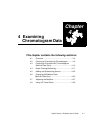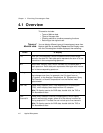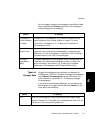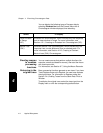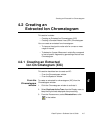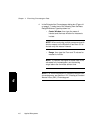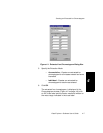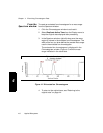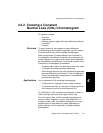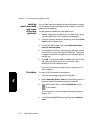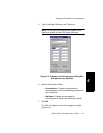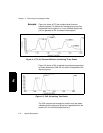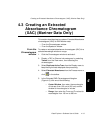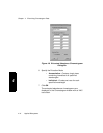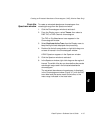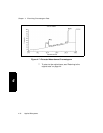
Creating an Extracted Ion Chromatogram
Data Explorer
™
Software User’s Guide 4-9
4
4.2.2 Creating a Constant
Neutral Loss (CNL) Chromatogram
This section includes:
• Overview
• Applications
• Labeling spectrum peaks with mass difference (optional)
• Procedure
• Example
Overview To rapidly screen for the presence of mass differences
corresponding to loss of specific fragments, you can create a
Constant Neutral Loss (CNL) extracted chromatogram.
When you generate a Constant Neutral Loss Extracted ion
chromatogram, the software constructs a chromatogram that
contains signal only for spectra that contain peaks separated
by the specified mass difference. To construct a Neutral Loss
Extracted ion chromatogram, the software:
• Compares each mass in the peak list to every other mass
in the peak list and derives mass differences.
• Takes the total signal of any pairs of peaks that generated
the mass difference and includes it in the chromatogram,
if any mass difference corresponds to a mass difference
plus tolerance specified.
Applications You can generate a CNL extracted chromatogram:
• To determine if a fragment of known mass is present
• To increase sensitivity of a trace by including signal from
both the parent and one or more fragment ions
For LCMS data, a CNL extracted chromatogram is useful to
identify eluting components with a given neutral loss.
For other types of data, a CNL extracted chromatogram is
useful to screen samples for a given mass difference. For
example, create a CNL extracted chromatogram to survey a
peptide digest for the presence of peaks separated by a
glycosyl residue, as you might see in a digest containing
glycopeptides.



